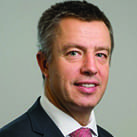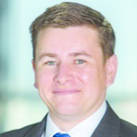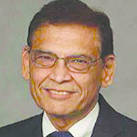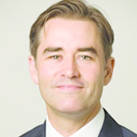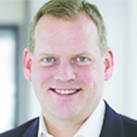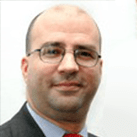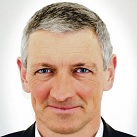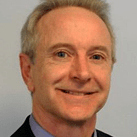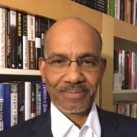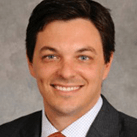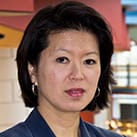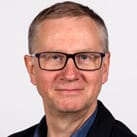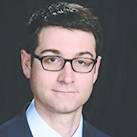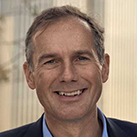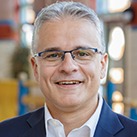Advisory Board Meeting 2015

13 Jan 2015
Time to be confirmed
GMT
By invitation only

Cambridge Judge Business School
Trumpington St
Cambridge
CB2 1AG
United Kingdom
Overview
The Cambridge Centre for Risk Studies held the 2015 meeting of its Advisory Board, with attendees representing the supporting organisations of the Centre, academic advisors, and invited guests.
The executive team of the Centre for Risk Studies presented a progress report on the past year’s activities, the current positioning and strategy of the Centre, and the various strands of research. The meeting was used to review the strategy, focus, and differentiating characteristics of the Centre.
The Advisory Board provided guidance and inputs into the planning of the future research agenda of the Centre for Risk Studies.
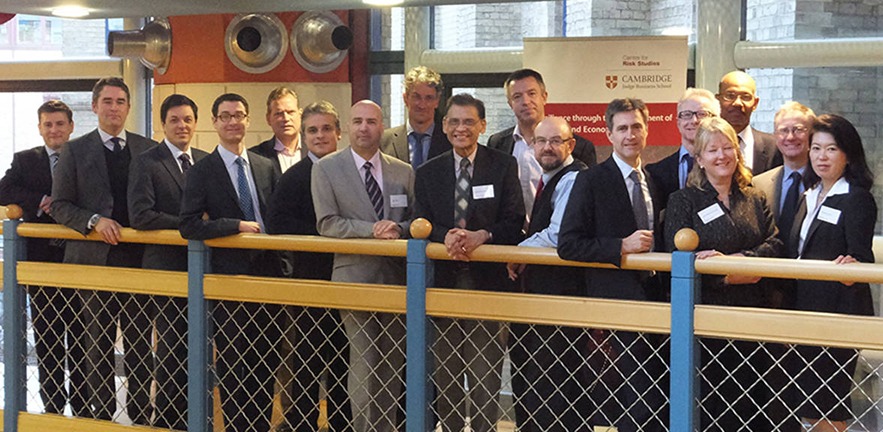
Agenda
- Welcome & Introductions
- Report on Past Year’s Activities with Dr Michelle Tuveson, Executive Director, Cambridge Centre for Risk Studies
- Centre Development Strategy with Professor Daniel Ralph, Academic Director, Cambridge Centre for Risk Studies
- Discussion Topic: Centre Development Strategy
- Research Agenda 2015, Research Programme Overview:
- Multi-Threat Economic Risk with Professor Daniel Ralph, Academic Director, Centre for Risk Studies
- Financial Catastrophe Risk with Dr Andrew Coburn, Director of Advisory Board, Centre for Risk Studies
- Cyber Catastrophe Risk with Simon Ruffle, Director of Technology Research & Innovation, Centre for Risk Studies
Research showcase
| Welcome & Review of Research Activities in 2014 | Professor Daniel Ralph, Academic Director, Centre for Risk Studies Download welcome presentation (pdf, 471 KB) Download presentation (pdf, 1.8MB) |
| Developing Frameworks for Managing Cyber Catastrophe Risk | Éireann Leverett, Senior Risk Researcher, Centre for Risk Studies Download presentation (pdf, 874KB) |
| Cambridge Risk Framework – Developments & Objectives | Simon Ruffle, Director of Technology Research & Innovation, Centre for Risk Studies Download presentation (pdf, 1.13MB) |
| Understanding the Economic Consequences of Catastrophes | Dr Scott Kelly, Senior Research Associate, Centre for Risk Studies Download presentation (pdf, 2.37MB) |
| Macroeconomic Modelling | Jaclyn Zhiyi Yeo, Risk Researcher, Centre for Risk Studies Download presentation (pdf, 528KB) |
| Impact of Scenarios on Investment Portfolios | Jennifer Copic, Risk Researcher, Centre for Risk Studies Download presentation (pdf, 333KB) |
| Contagion Modelling of Financial Crises | Dr Olaf Bochmann, Research Associate, Centre for Risk Studies Download presentation (pdf, 17.4MB) |
| Financial Catastrophe Risk Research | Dr Andrew Coburn, Director of the External Advisory Board, Centre for Risk Studies Download presentation (pdf, 2MB) |
Speakers and resources
Russell Bean
Head of Financial Institutions Underwriting, Talbot Underwriting
Russell started his career at the Sun Alliance and between 1994 and 2002 he underwrote Professional and Financial Lines before becoming the worldwide FI product leader. He is currently the Head of Financial Institutions at the Talbot Syndicate where he oversees all aspects of the division. He is ACII qualified and sits on a number of market committees, including chairing the LMA FI panel.
Nick Beecroft
Head of Emerging Risks & Research, Lloyd’s
Nick Beecroft is Manager, Emerging Risks and Research at Lloyd’s. His team is responsible for providing foresight and actionable analysis on emerging risks, working with partners in the research community to provide forward-looking insight and to reduce uncertainty concerning new and rapidly changing risks. Key outputs are thought leadership reports, scenarios for stress-testing and insight to inform innovation strategy. Before joining Lloyd’s, Nick spent the majority of his career as an Intelligence Officer in the Royal Air Force. Appointments included attachments to central government in a counter-terrorism role and to the British Army, where he was responsible for operational planning and mentoring of local forces on deployed operations.
Siddhartha Dalal
Chief Data Scientist and Sr. VP of Advanced Research and Technology, Science, AIG Property Casualty
Siddhartha Dalal is the Chief Data Scientist and Sr. VP of Advanced Research and Technology at AIG focusing on technologies and research that have the potential to transform the insurance industry. As an integral part of this strategy, he concentrates on creating partnerships with external research institutions to identify key new research areas that can help AIG leapfrog the industry. He is also a member of the US Army Science Board and an Adjunct Professor at Columbia University teaching Data Mining and Machine Learning.
Prior to AIG, he was the CTO at RAND Corporation where he helped spinoff a risk analytics company, Praedicat Inc., in the casualty space. Sid’s industrial research career began at Math Research Center at Bell Labs and Bellcore where he was the Chief Scientist and Executive Director. This was followed by a career at Xerox as the Vice President of Research in charge of its worldwide imaging and software services research, which resulted in the transformation of Xerox to a services company.
Recipient of several honours, including Fellow of the American Statistical Association and Bellcore, Rochester Distinguished Scholar Medal, and best paper awards from ASA, ASQ and IEEE, Sid has co-authored over 100 peer-reviewed publications, patents and monographs covering the areas of medical informatics, risk analysis, image processing, stochastic optimisation, data/document mining, software engineering and Bayesian methods. He has also made contributions to the area of sensors and sensor networks. Sid holds a BS from the University of Bombay and an MBA and PhD from the University of Rochester.
Jason Futers
Head of Emerging Risk Innovation, Senior Vice President, RMS
Jason runs RMS’ Emerging Risk Innovation group, responsible for the development of solutions to emerging risks, and the identification and incubation of emerging markets. Jason is responsible for the growth of key markets and territories, including RMS’ LifeRisks business, and serves as Chief Executive Officer of RMS’ subsidiary in Japan.
Jason has lived and worked in the UK, US and Japan, beginning his risk management career managing the reinsurance portfolio for a US-based medical insurer. Prior to RMS, Jason also worked for a UK fund manager and for a Cambridge technology company.
Anna-Marie Greenaway
Director of University Relations, BP
Anna-Marie Greenaway is BP’s senior representative at the University of Cambridge and leads the strategy for the joint strategic relationship encompassing research to support BP’s global operations, recruitment, executive education and international research partnerships. She is a member of the Board of the BP Institute and sits on the Advisory Board of the Scott Polar Institute and the Clean Energy Centre at Tsinghua University, Beijing. Previously, Anna-Marie spent four years in BP’s Group Strategy team where she led the 2030 Energy Pathways research programme covering the US, EU, China, India and Brazil. This involved bringing together local, international and multi-disciplinary teams from across BP and incorporating external perspectives from wider industry sectors, government bodies and leading academics.
Earlier roles at BP have spanned special assignments to support Group Technology and Safety & Operations, Head of Downstream Change Leadership Capability and leading the Technical & Commercial Partnership between BMW & Castrol across Western Europe. Prior to BP, Anna-Marie’s spent 10 years in Retail operations, advertising and corporate communications with Exxon after joining their graduate programme in 1989 as a capital investment analyst.
Dr Sven Heiligtag
Principal, McKinsey & Company
Sven is a Partner in McKinsey & Company´s Hamburg office. Sven is a leader in McKinsey’s Risk Management Practice as well as in the Electric Power & Natural Gas Practice. He is responsible for all Corporate Risk topics and is leading our energy trading and risk management survey in Europe.
He has deep experience in advising clients in the energy and natural resources industries on challenges in risk management, corporate finance, strategy and organisation.
Sven has a master’s degree and a PhD in Chemistry from the University of Hamburg.
Dr Michael Maran
Chief Science Officer, XL Catlin
Dr Michael Maran graduated from St Catharine’s College, Cambridge in 1983 with a bachelor’s degree in Natural Sciences (having studied the biological and geological sciences) and subsequently a master’s degree and PhD in Astrophysics from Queen Mary College, University of London. He is an ACII qualified Chartered Insurer with 30 years of experience in the insurance industry, and a Fellow of the Royal Astronomical Society. Mike joined the Catlin Group in 2002 and spent 10 years as Underwriter for the Space account. In 2012, he was appointed as the Catlin Group’s Chief Science Officer, and is also chairman of the Group’s Emerging Risks Committee.
In this new role, Mike works with Catlin underwriters, risk modellers, actuaries and other employees to improve Catlin’s risk assessment capabilities by reviewing the scientific aspects of risks. He also identifies new underwriting opportunities for Catlin created by scientific progress, and he serves as an advisor for various Catlin activities that are related to science, such as the current Catlin Seaview Survey.
Dr Rainer Sachs
Head of Group Accumulation and Emerging Risks, Munich Re
Dr Rainer Sachs heads the Group Accumulation and Emerging Risks team at Munich Re’s Integrated Risk Management division, developing risk identification and quantification tools for Munich Re’s global business operations. Before joining Munich Re, Rainer Sachs was working in the Credit Risk Management division at Unicredit. During his more than 10-year career in risk management, he has held various positions in financial and insurance risk management, both in Germany and Australia. Rainer Sachs’s current research interests focus on modelling complex risks in insurance and the human factor in decisions under uncertainty. He holds a PhD from the University of Munich/Max-Planck-Institute for extra-terrestrial Physics and a Master in cosmology from the Technical University of Munich/University of Pune (India).
Dr Paul Sanderson
Deputy Head, Economic Performance and Environment, Economic and Social Research Council
Dr Paul Sanderson leads on economics at the Economic and Social Research Council (ESRC), where he is also responsible for developing academic engagement with the financial services sector. Paul has been with the ESRC since 2009. He began his career as an academic economist but has subsequently held senior roles in research, risk management and business planning in a variety of positions in both the private and public sectors: these include posts held at the Bank of England, HM Treasury, Barclays and Nationwide.
Alan Smith
First Church Estates Commissioner, The Church of England; and Senior Advisor ESG Risk and Inclusion, HSBC
Alan Smith is Senior Advisor – ESG Risk and Inclusion at HSBC where he helps shape their global management approach to ESG risks. He is a member of HSBC’s ESG Steering Committee and its Climate Business Council, which is responsible for shaping the bank’s sustainability strategy. From 1 October 2021, Alan has been appointed as the First Church Estates Commissioner of the Church of England.
Alan’s career spans 35 years in risk management, finance, investment banking and advisory roles at HSBC and KPMG. From 2011 to 2020, Alan was Global Head of Risk Strategy and Chief of Staff to HSBC’s Group Chief Risk Officer and has worked for HSBC for 27 years in a variety of senior ESG, risk and capital management, and investment banking roles. Prior to HSBC Alan worked for KPMG for 8 years. Alan is the Chair of the Systemic Resilience Forum of the Coalition for Climate Resilient Investment and also a Trustee of the Global Association of Risk Professionals. He is a Fellow of the Institute of Chartered Accountants in England and Wales and has an MBA in Finance from The Bayes Business School, City University of London.
Matthew Swibel
Director, Corporate Sustainability, Lockheed Martin
Matt directs sustainability strategy, reporting and stakeholder engagement at Lockheed Martin Corporation, which under his tenure was added to the Dow Jones Sustainability Index and became the top-ranked Aerospace & Defense prime contractor named to CR Magazine’s 100 Best Corporate Citizens list. He led Lockheed Martin’s inaugural report in 2012, and its first core issues assessment, formal stakeholder summits and GRI-based report in 2013. He reports to the corporate vice president – Ethics & Sustainability, and sits on the Corporate Sustainability Council, which oversees ethics & business conduct, diversity & inclusion, and sustainability policy & performance.
From 2008 to 2012, Matt was Director of Enterprise Communications, where he led a team supporting the CFO, Executive Office of the Chairman and other corporate officers. In this role, he developed and planned multiple aspects of integrated communications including employee and supplier engagement, advertising and outreach to investors and financial/environmental media. Matt spent almost a decade as a journalist, most recently as Associate Editor of Forbes, where he co-edited the World Billionaires issue and was recognised by the Overseas Press Club for his business reporting from abroad. Prior to Forbes, he was a staff reporter at Washington Business Journal, where his coverage of marketing and web-based political fundraising each earned Maryland-DC-Delaware and Virginia Press Association awards. He taught as an adjunct professional lecturer at American University’s School of Communication from 2005 to 2008. Matt graduated cum laude from American University (DC) with degrees in Communications and Sociology and earned an MBA from the University of Maryland. He is an independent director of Cornerstone Capital.
Executive Committee of Cambridge Centre for Risk Studies
Professor Daniel (Danny) Ralph
Academic Director, Cambridge Centre for Risk Studies
Professor of Operations Research, University of Cambridge Judge Business School
Professor Danny Ralph is a Founder and Director of the Centre for Risk Studies, Professor of Operations Research at Cambridge Judge Business School, and a Fellow of Churchill College.
Danny received his PhD in 1990 from the University of Wisconsin Madison. He was a faculty member of the Mathematics & Statistics Department at the University of Melbourne before coming to Cambridge University for a joint appointment in the Engineering Department and Cambridge Judge Business School.
Danny’s research interests include: risk in business decision making; risk aversion in electricity markets; methods and models for optimisation problems and equilibrium systems. Specific projects undertaken in collaboration with the banking and insurance industry (Catlin, HSBC, ICBC, Lloyd’s, Munich Re, Risk Management Solutions, Swiss Re) cover emerging risk scenarios, financial stress testing and a global ranking of cities by risk exposure. Engagements with other sectors include electricity consultancies (Artelys, LCP), oil and gas (Shell Exploration, Statoil) and retail (BT Retail, Gap) on decision making under high uncertainty. Public service contributions to the UK Cabinet Office, UK Industry and Parliamentary Trust, UK Office of the Government Chief Scientific Advisor, and United Nations World Humanitarian Summit.
Professor Ralph is a member of the Australian Mathematical Society, INFORMS, the Mathematical Optimization Society and SIAM. He was Editor-in-Chief of Mathematical Programming (Series B) from 2007-2013 and has served on the editorial boards of Mathematics of Operations Research and the SIAM Journal on Optimization, as well as the SIAM-MPS book series on optimisation.
Dr Michelle Tuveson
Executive Director, Cambridge Centre for Risk Studies
Dr Michelle Tuveson is a Founder and Executive Director at the Cambridge Centre for Risk Studies hosted at the University of Cambridge Judge Business School. Her responsibilities include the overall executive leadership at the Centre. This includes developing partnership relationships with corporations, governments, and other academic centres. Dr Tuveson leads the Cambridge CRO Council and she chairs the organising committee for the Cambridge Risk Centre’s Annual Risk Summits. She is one of the lead organisers of the Aspen Crisis and Risk Forum. She is an advisor to the World Economic Forum’s 2015 Global Risk Report and a contributor to the Financial Times Special Report on Risk Management. She is also an advisor to a number of corporations and boards as well as a frequent conference speaker.
Dr Tuveson has worked in corporations within the technology sector with her most recent position in the Emerging Markets Group at Lockheed Martin. Prior to that, she held positions with management strategy firm Booz Allen & Hamilton, and US R&D organisation MITRE Corporation. Dr Tuveson’s academic research focuses on the application of simulation models to study risk governance structures associated with the role of the Chief Risk Officer. She was awarded by the Career Communications Group, Inc. as a Technology Star for Women in Science, Technology, Engineering and Maths (STEM). She earned her BS in Engineering from the Massachusetts Institute of Technology, MS in Applied Math from Johns Hopkins University, and PhD in Engineering from the University of Cambridge. She is a member of Christ’s College, Cambridge.
Simon Ruffle
Director of Technology Research, Cambridge Centre for Risk Studies
Simon Ruffle is researching a common framework for analysing complex global systemic risk. He coordinates research in the Centre though a unified modelling software platform, a common database architecture and information interchange standards. He is developing methods for storing and applying the Centre’s Stress Test Scenarios and other Risk Assessment Tools to macro-economic analysis and investment portfolio impact. He is researching how network theory can be applied to understanding the impact of catastrophes in a globalised world, including supply chains, insurance and banking.
He is involved in specific threat topics, and currently is leading the Centre’s cyber threat research track. He is a member of the Centre’s Executive Team and manages several external sponsor relationships.
Originally studying architecture at Cambridge, Simon has spent most of his career in industry, developing software for natural hazards risk. He has worked on risk pricing for primary insurers, catastrophe modelling for reinsurers, and has been involved in placing catastrophe bonds in the capital markets. He has many years of experience in software development, relational databases and geospatial analysis and has worked in a variety of organisations from start-ups to multinationals.
Academic Advisors & Guest Attendees
Brad Fischtrom
Managing Director, Head of Scenario Development and Stress Testing, AIG Property Casualty
Brad Fischtrom is Managing Director, Head of Scenario Development and Stress Testing for AIG Property Casualty. He is accountable for designing, quantifying and reporting realistic disaster scenarios and regulatory-driven stress tests as part of AIG’s Enterprise Risk Management (ERM) framework. Brad’s team is also responsible for innovation in the areas of emerging risk management and development of data and risk measurement tools for insurance risk aggregation. Prior to joining AIG in 2010, he has held positions at Towers Watson and Aon Risk Services.
Brad holds a Bachelor of Science Degree in Finance from the University of Richmond Robins School of Business, and he is an Associate in Risk Management (ARM) and Chartered Property Casualty Underwriter (CPCU).
Matthew Grant
General Manager, RMS Model & Data
Matthew is responsible for RMS’ worldwide sales, model product strategy, capital markets, emerging markets and corporate marketing. Matthew founded the RMS European office in 1996, and has been a leading advocate for the use of catastrophe modelling and risk assessment within the insurance and reinsurance markets since 1992. Prior to joining RMS, Matthew was involved in risk assessment and emergency planning for the nuclear, chemical, and offshore industries. He holds a degree in Mechanical Engineering.
Professor Stylianos Kavadias
Director of Research and Margaret Thatcher Professor of Enterprise Studies in Innovation and Growth, Cambridge Judge Business School
Professor Kavadias is Director of Research at Cambridge Judge Business School and oversees the research activities across the Centres of the Business School. Stelios is a member of the Operations subject group and his research interests cover the effectiveness of new product development (NPD) decisions with a particular focus on the decisions that concern: (i) the strategy implementation through the appropriate resource allocation rules and the definition of the “right” portfolio of new projects and products; (ii) the R&D ideation, search and experimentation process both at a firm level and the project team level; (iii) the effects of the organisational design and the associated incentive schemes on the product development outcome. At a broader level, he is seeking to understand the challenges that arise during the planning and execution phases of the innovation process, always with an operational/managerial perspective.
Previously Professor Kavadias was the Steven A. Denning Professor of Technology & Management, as well as an Associate Professor of Operations Management, at the College of Management at Georgia Tech. He has also been a Batten Fellow at the Batten Institute of Innovation and Entrepreneurship at the Darden School of Business.


